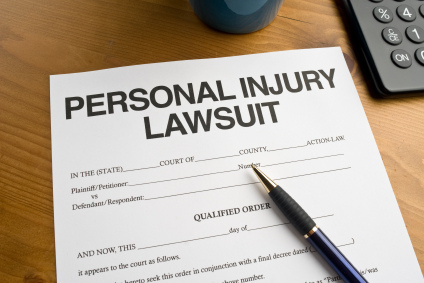Personal injury is a legal term used to describe any kind of physical harm or psychological distress caused to one person due to another person or a group of people. This includes a wide range of cases such as motor vehicular accidents, assault, medical negligence, public liabilities and product liability claims. Personal injuries can disrupt the well-being of an individual and at times even cause permanent damage. It is for this reason that victims can seek for remuneration or compensation for the damages incurred due to the injury. Negligence is one among the many types of personal injury claims. However, personal negligence can be a complex concept for most victims to understand. Here’s a closer look at the concept of negligence to help you understand these claims better:
Personal Negligence Definition:
Any form of negligence basically comprises of three main aspects:
- There should be a definite duty of care for the person causing the injury (eg. Medical practitioner)
- The person causing the injury must fall short of his/her duties towards the victim.
- The victim must incur financial or physical loss or psychological distress due to the actions of the defendant.
As per the personal injury law, the benchmark for the final verdict is based on a ‘reasonable man’s judgement’. This means every individual is expected to act reasonably under any circumstance. Failure to behave in an aforementioned manner is considered negligence. There are many cases pertaining to negligence wherein both parties seem to be right in their own way but the court will follow the standards of a reasonable man as opposed to a subjective evaluation of the situation based on either party’s opinion. For a medical practitioner, there are certain standards of care established by the medical society in Canada. If the defendant (medical practitioner) fails to adhere to these standards and causes harm to a patient, then he can be held liable by the patient.
Types of Negligence
There are three main types of negligence cases commonly found in Canada.
- Gross Negligence: Most cases of medical negligence fall under this category. If a defendant is found to be majorly negligent in performing his/her duties leading to damage to the victim, then the victim has the right to sue the defendant for his actions and even claim for a compensation.
- Comparative Negligence: In this type of negligence, the defendant’s lawyer argues that the victim too had some role in the injury or harm caused. For example, if you were driving under the influence of alcohol and someone collides with your vehicle causing injuries, then the defendant can claim that you were partly responsible for the loss and can negotiate for the amount of compensation.
- Vicarious Negligence: Cases of vicarious negligence are usually established when a personal injury claim is filed against one person even when the wrongful act was done by someone else. The other entity responsible for the injury in these cases is usually a minor or a pet. So, if your pet causes injuries to another person, then you will be held liable for it, even though it was your pet who was responsible for the harm.
To understand personal negligence definition better, refer to our guide on types of negligence or consult our legal experts today.

